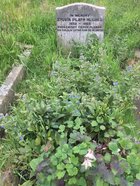
The 18th-century mill owner’s house overlooking a wooded valley has been welcoming writers for Arvon courses and retreats since 1975. When I had made my way down the steep hill from the main road a comfy room with a desk that was begging to be written at was waiting for me. Downstairs a fresh pot of tea along with a large tin of biscuits was in the lounge where I met the other people I would be spending the week with. It was my first time on an Arvon course but many participants were veterans drawn back again and again by the hospitality, food, beautiful locations and expert tuition by some of the best practising writers around.
1. One-to-one tuition. The opportunity to discuss my poetry with the tutors was invaluable. With a few pencil strokes John and Colette showed how to fix the weak parts of my poems whether it was a stanza, line or single word. They could also recommend off the top of their heads poems I should read to get a better idea of how to improve my work. After my first session with John he sent me away with a heavy stack of books from the centre’s well stocked library.
2. Classes that pushed us to the next level. During morning sessions we focused on imagery, creative uses of form, the many different forms of the sonnet and picked apart the works of great poets including Sylvia Plath, Seamus Heaney, Elizabeth Bishop, Paul Muldoon and many more. We also did regular writing exercises many of which proved fruitful and it was interesting to hear what other participants came up with.
3. Food! From a well stocked buffet at lunchtime to scrumptious home-cooked dinners the week was a non-stop banquet. Evening meals were cooked by people on the course. Everyone took it in turns to cook in a team of two or three. My team managed to produce a decent chicken curry and apricot crumble on the Wednesday night. Far from being an unwanted chore it was a great opportunity to get to know other participants and seeing the rest of the group tucking into a meal I had helped cook was extremely satisfying. There was also a plentiful supply of wine which we ordered in at the start of the week.
4. Country walks. With so much food being served it was good to be surrounded by hills and woodland over which to walk it off. Much of my time in the afternoon was spent exploring the area and working up an appetite for the next meal. On Friday we began our last morning session with a walk in the woods. Back at the centre Colette set us a task in which we wrote sentences about the walk beginning I notice… . Afterwards we picked our best ones and went around taking it in turns to read them out, forming a collaborative poem. A couple of my best lines were: I notice the way you look a little further than usual, let nature coax you out of your armour, and I notice the politeness of houses sitting still so as not to disturb the foxgloves.
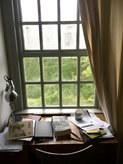
6. Pub quiz. With no programmed activity on Thursday evening we went to the quiz night at the pub in Heptonstall. After an easy start (What does the T S stand for in the name T. S. Eliot?) the questions got harder and while both teams gained respectable scores we couldn’t beat the local champions.
7. No news. TV and internet are standard amenities at most places these days but their absence at Lumb Bank was something I soon came to appreciate as I spent my time reading, writing and walking without having to think about the outside world. Basic details of the Grenfell Tower disaster and Donald Trump being investigated by the FBI filtered through but we were cushioned from the deluge of news and analysis that dominates the modern world.
8. Quality writing time. I put my desk to good use as I worked on writing exercises set in the classes and revised earlier work. I came away with a satisfying collection of new and improved poems.
9. Wildlife. The air was full of birdsong, bees thronged around the flowerbeds in the garden and we even encountered a hedgehog on our way back from the pub. There was also an unofficial resident at the centre, a cat that has learnt that there are always plenty of animal loving writers around to make a fuss of him.
My week at Arvon has certainly made me a better poet equipping me with new ideas and techniques to develop in the future. A few lessons I took away were:
- Write better titles - many of mine just repeat what's in the poem.
- Keep reading.
- Create powerful images. A good technique for appreciating the images in other poets poems is to draw them.
- Keep reading.
- There are many effective ways to play with language and form. The subtle ways the best poets do this requires careful scrutiny.
- The world won't end if you switch off for a while and work on your writing.
- Keep reading.
www.arvon.org
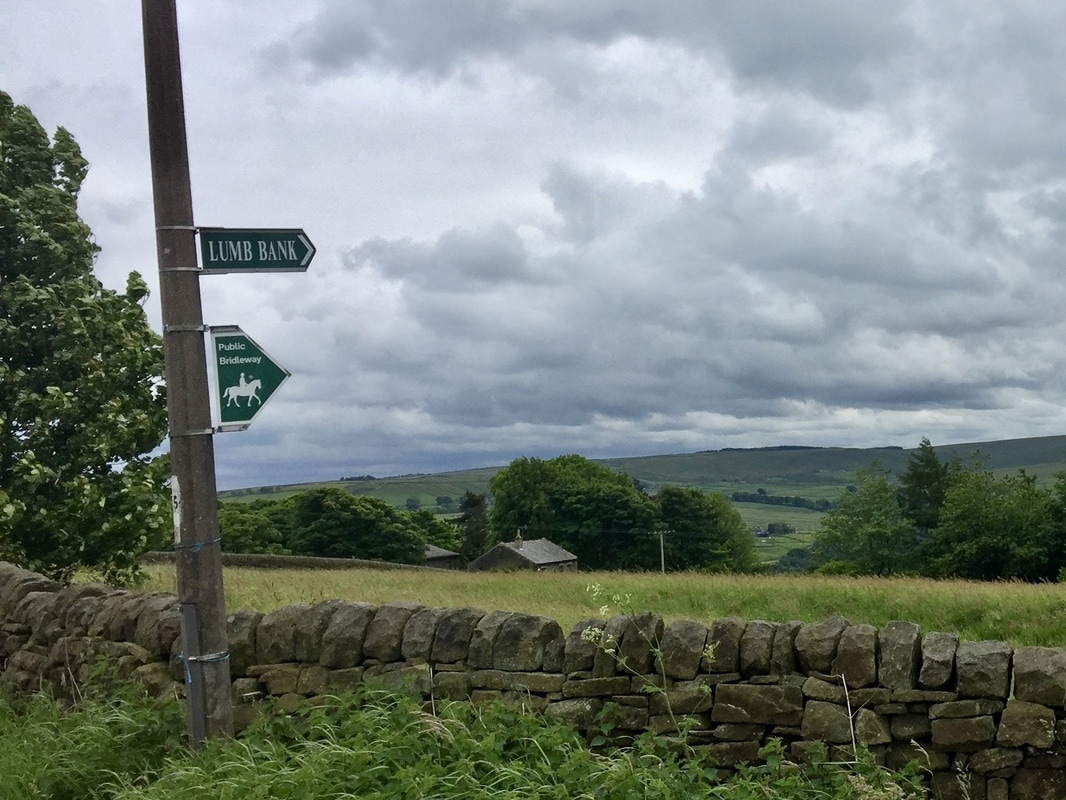
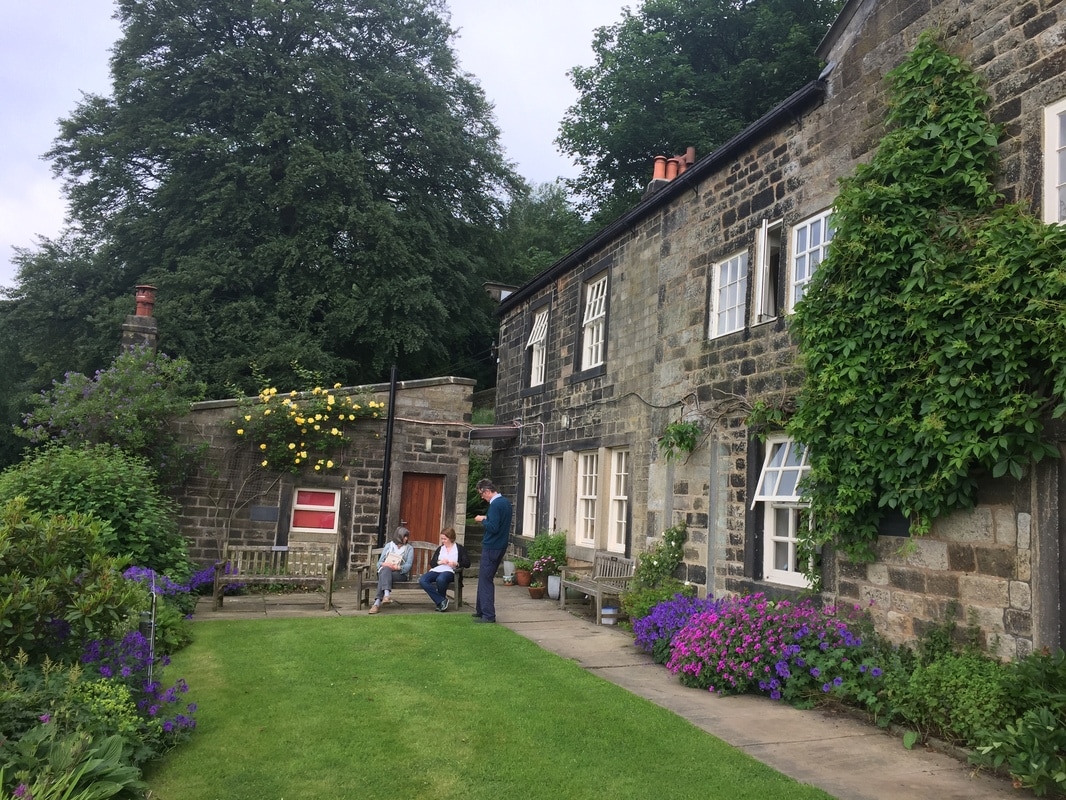
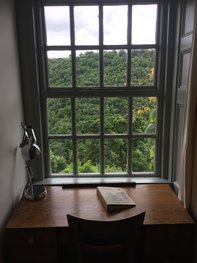
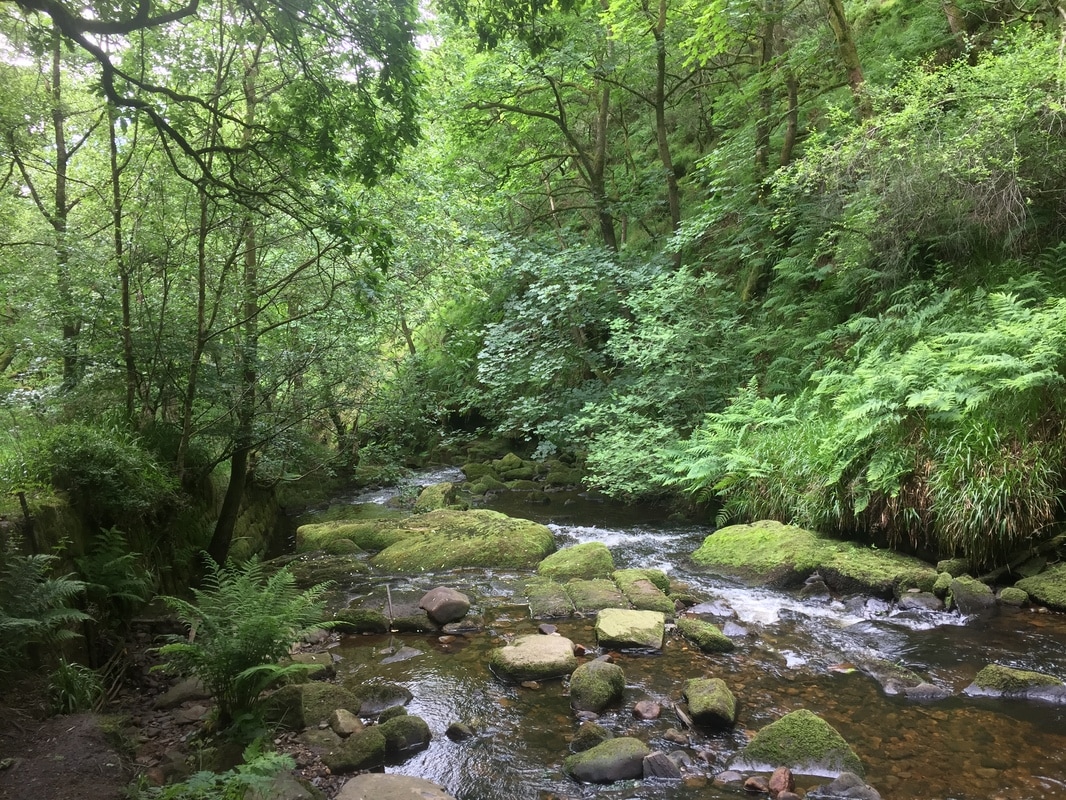
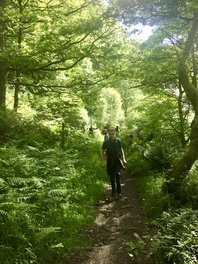
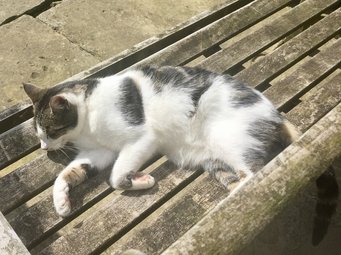
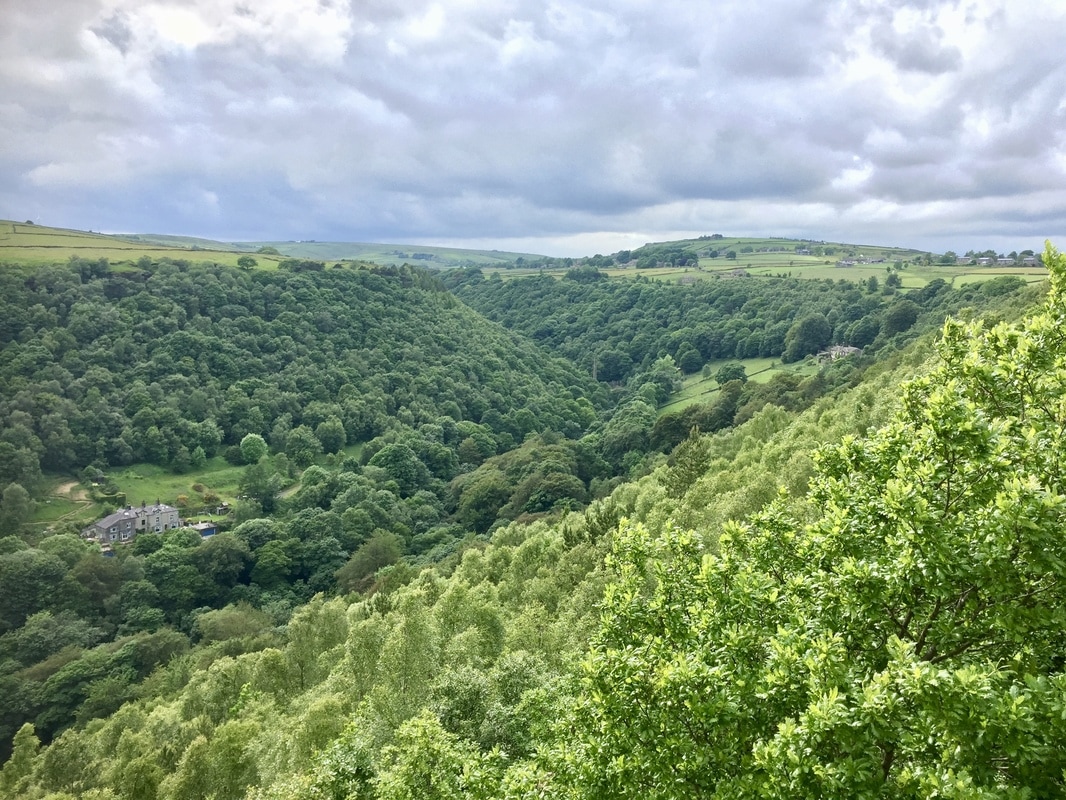
 RSS Feed
RSS Feed
